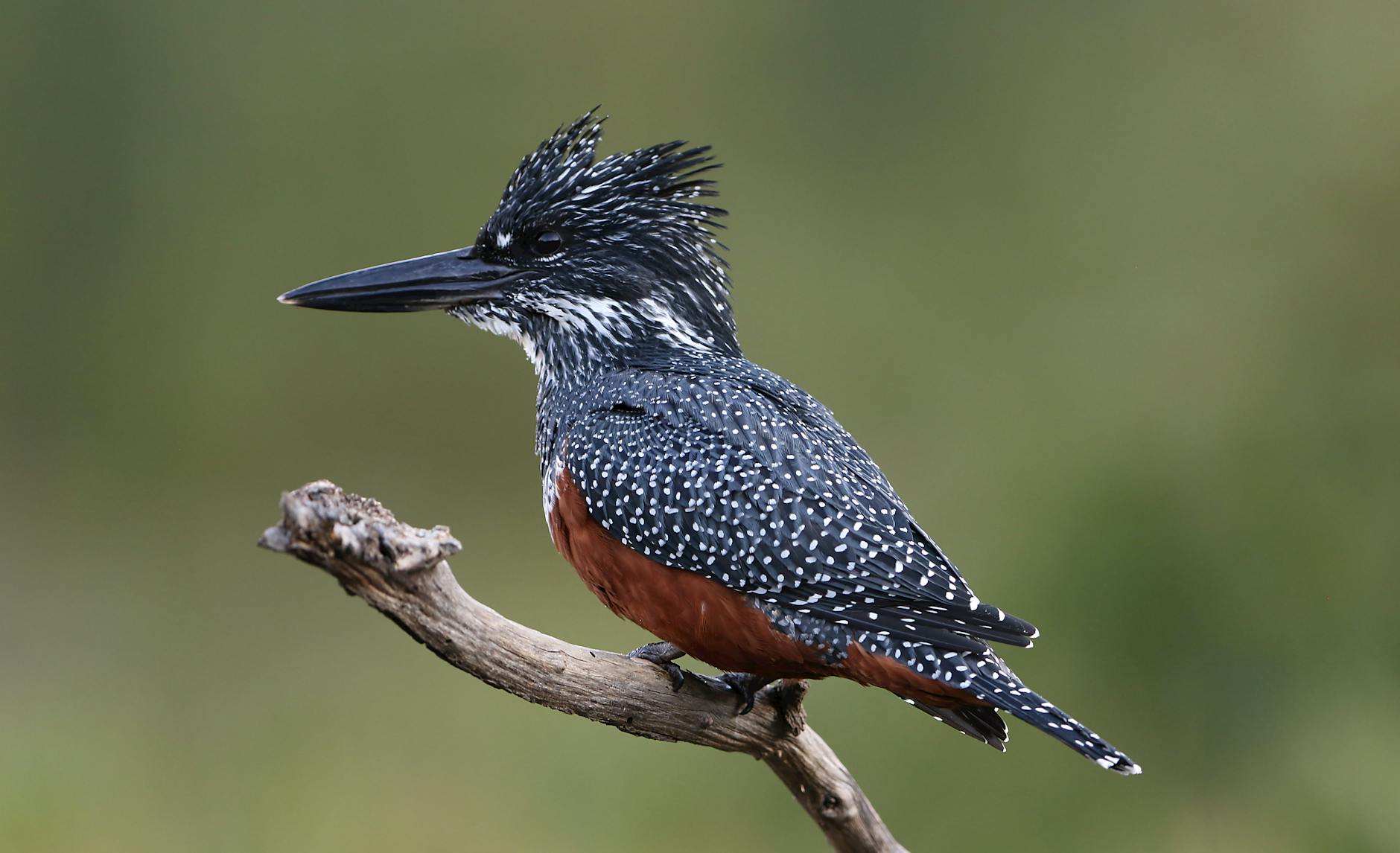Living Intelligence: The Future of AI & Biotech in Africa
At the intersection of artificial intelligence and biotechnology, a revolutionary paradigm is emerging—living intelligence. Imagine machines that don’t just compute, but adapt, learn, and respond to their environments with almost organic intuition. While Silicon Valley startups secure millions in funding and tech giants like Google experiment with AI-driven fashion applications, Africa stands at the threshold of its own technological renaissance. This fusion of AI systems with biotechnology components is creating machines that function less like tools and more like responsive partners, capable of real-time adaptation and even emotional awareness.
The implications for African industries are profound and far-reaching 🌍. From healthcare systems employing smart prosthetics that learn from their users, to agricultural innovations utilizing bio-driven soil sensors that communicate with farmers, living intelligence is poised to address uniquely African challenges. Yet this technological evolution brings with it critical questions about data privacy, decision-making autonomy, and the ethical use of living materials in technology—questions that require distinctly African perspectives and solutions.
In this exploration of living intelligence in Africa, we’ll delve into the core technologies driving this revolution, examine current applications transforming industries across the continent, assess the investment landscape, navigate the complex ethical considerations, and glimpse the future trajectory of this transformative fusion of AI and biotechnology in the African context.
Understanding Living Intelligence: The Fusion of AI and Biotechnology

Understanding Living Intelligence: The Fusion of AI and Biotechnology
A. Defining the interdisciplinary nature of living intelligence systems
Living intelligence represents a revolutionary convergence of artificial intelligence and biotechnology, creating systems that combine computational reasoning with biological components. This interdisciplinary field is transforming Africa’s scientific landscape, particularly in life sciences research. The integration of AI into biological research has already reached milestone recognition, as evidenced by the Nobel Prize awarded for AI-driven protein design. This convergence creates hybrid systems capable of addressing complex challenges unique to the African context.
At its core, living intelligence bridges the gap between computational systems and biological processes, establishing a framework where digital algorithms and organic elements work synergistically. The interdisciplinary nature encompasses genomics, bioinformatics, computer science, and biocontainment research—particularly crucial for Africa’s public health challenges.
B. How AI drives reasoning, learning, and autonomous decision-making
AI provides the cognitive foundation for living intelligence systems through sophisticated algorithms that enable reasoning, pattern recognition, and autonomous decision-making. In the African context, these capabilities are proving invaluable for analyzing pathogen genomic data and optimizing diagnostic procedures.
AI tools enhance biocontainment facilities’ capabilities across several critical functions:
- Complex pathogen data analysis at unprecedented speeds
- Enhanced disease surveillance systems with predictive capabilities
- Optimization of diagnostic development workflows
- Coordinated emergency response to emerging infectious disease threats
The computational power of AI enables systems to process vast datasets from biological research, identifying patterns and connections that would be impossible for human researchers to detect independently. This is particularly valuable in Africa’s diverse biological environments where rapid analysis can lead to breakthroughs in addressing regional health challenges.
C. The role of biotechnology in creating organic-digital hybrid systems
Biotechnology provides the organic components that, when integrated with AI, create truly hybrid living intelligence systems. The foundation for Africa’s genomic future has been established over the past decade, positioning the continent at a unique intersection of bioinformatics, genomics, and artificial intelligence.
Africa’s dynamic bio-ecosystem offers fertile ground for innovation in organic-digital integration. The continent’s bioeconomy is increasingly leveraging this convergence to address local challenges. Biotechnology contributes the biological mechanisms, samples, and processes that AI can analyze and optimize, creating systems that harness both computational efficiency and biological adaptability.
Research facilities across ten priority African countries—South Africa, Namibia, Botswana, Kenya, Uganda, Rwanda, Ethiopia, Ghana, Nigeria, and Cameroon—are developing capabilities to lead this biotechnological revolution, with Southern and Eastern Africa demonstrating particularly strong laboratory infrastructure.
D. Advanced sensors as the nervous system of living intelligence
Advanced biological and digital sensors function as the nervous system of living intelligence technologies, collecting vital data that feeds into AI processing systems. These sensors enable real-time monitoring of biological processes, environmental conditions, and pathogen behaviors—creating the sensory infrastructure necessary for responsive living intelligence systems.
In biocontainment facilities across Africa, these advanced sensing technologies are enhancing biosafety measures and improving governance protocols. The integration of sensors with AI creates a comprehensive monitoring system that can detect anomalies, predict potential issues, and trigger appropriate responses.
This sensory network is particularly valuable for Africa’s research focusing on critical public health challenges such as HIV/AIDS, tuberculosis, and tropical diseases. The established centers of excellence across the continent are incorporating these sensing technologies to enhance regional expertise and improve response capabilities.
With these foundational elements of living intelligence established, we can now explore the Core Technologies Powering Africa’s AI-Biotech Revolution, which will provide deeper insight into the specific technological advancements driving this transformation across the continent.
Core Technologies Powering Africa’s AI-Biotech Revolution
Core Technologies Powering Africa’s AI-Biotech Revolution
Now that we’ve explored the fusion of AI and biotechnology that defines Living Intelligence, let’s examine the core technologies driving this revolution across the African continent.
Neural Networks and Deep Learning Adaptations for African Contexts
African AI startups are customizing neural networks to address unique regional challenges. Companies like InstaDeep from Tunisia have secured impressive funding ($100 million) by developing specialized AI decision-making systems tailored for biotech applications. These systems are designed to process and analyze data patterns specific to African populations and environments.
Zindi, a notable platform mentioned in Sisi Afrika Magazine, hosts data science competitions that encourage the development of AI models optimized for African contexts. This collaborative approach has accelerated the creation of deep learning algorithms that can function effectively with limited computational resources—a critical adaptation for regions with infrastructure constraints.
Yemaachi Biotechnology exemplifies the localization trend, leveraging AI specifically for cancer research tailored to African populations. Their work demonstrates how neural networks can be trained on region-specific genetic data to improve healthcare outcomes that traditional global models might miss.
Biochips and Synthetic Cells Enabling Self-Repair Capabilities
The integration of biological components with digital systems is creating remarkable self-repair capabilities. Scispot’s lab management software supports innovative biotech startups working on biochips by centralizing research data and streamlining operations for these complex biological-digital systems.
African researchers are developing synthetic cells that can detect and respond to environmental changes, creating systems with autonomous repair functions. These technologies benefit from AI-powered analytics that predict potential failures before they occur, extending the lifespan of biotech implementations in challenging environments.
Environmental Sensing Technologies Suited for Diverse African Ecosystems
Africa’s varied ecosystems require specialized environmental sensing technologies. DataProphet, with $16 million in funding, has pioneered predictive analytics systems that enhance efficiency in various environments. Their technologies are being adapted to monitor agricultural conditions, water quality, and environmental health across diverse African regions.
RxAll has created sensing technologies for drug authentication, addressing a critical healthcare need. Their systems combine AI analysis with biological markers to verify medication authenticity, protecting patients across the continent from counterfeit pharmaceuticals.
Integration Challenges Between Organic and Digital Components
Despite promising advances, significant challenges remain in integrating organic and digital components. Scispot addresses this by providing platforms that bridge the gap between laboratory instruments and digital interfaces, facilitating seamless data transfer between biological samples and AI analysis systems.
The fragmentation of lab systems, as referenced in Scispot’s materials, remains a persistent obstacle. Different standards, protocols, and technical specifications between organic sensing equipment and digital processing systems create interoperability issues that African startups are actively working to solve.
With these core technologies continuing to evolve, next we’ll explore the current applications transforming African industries through Living Intelligence, showing how these foundational technologies are being deployed to address real-world challenges across the continent.
Current Applications Transforming African Industries
Current Applications Transforming African Industries
Building upon the core technologies we explored in the previous section, Africa is witnessing remarkable implementations of AI-biotech integration across various sectors. These living intelligence solutions are addressing unique challenges and creating opportunities specific to the African context.
Healthcare Innovations: Smart Prosthetics and Biomedical Solutions
The fusion of AI and biotechnology is revolutionizing healthcare delivery across Africa. As highlighted during the Future of Science Communication Forum in February 2025, AI is significantly enhancing healthcare by analyzing large medical datasets, which improves disease diagnosis and prediction. Machine learning algorithms are being deployed to identify diseases like malaria and tuberculosis, especially critical in regions with limited access to medical specialists.
Smart prosthetics powered by AI are becoming increasingly available, offering mobility solutions to patients across the continent. These devices adapt to individual users’ movement patterns and provide more natural functionality than traditional prosthetics.
AI-facilitated telemedicine has become a cornerstone of healthcare delivery, enabling remote consultations in underserved areas. This technology prioritizes patient care through predictive analytics while automating administrative tasks, allowing healthcare workers to focus more on direct patient interactions. AI-powered wearables are gaining popularity across Africa, offering continuous health monitoring and personalized recommendations that prevent diseases before they manifest.
Agricultural Advancements: Bio-driven Soil Sensors and Crop Monitoring
The agricultural sector is experiencing significant transformation through AI-biotech integration. Bio-driven soil sensors are helping farmers analyze soil conditions in real-time, while AI algorithms process this data to recommend optimal farming practices. These technologies are optimizing crop yields and managing pest control, directly enhancing food security across the continent.
By leveraging machine learning to analyze environmental conditions, farmers can make data-driven decisions about planting times, irrigation needs, and harvest schedules. This precision agriculture approach is particularly valuable in regions facing climate change challenges.
Environmental Conservation through AI-powered Bio-sensors
Environmental conservation efforts are being enhanced through the deployment of AI-powered bio-sensors that monitor ecosystems and detect changes in biodiversity. These sensors collect vast amounts of environmental data, which AI systems analyze to identify trends and potential threats.
The technology enables conservation teams to track wildlife populations, monitor deforestation, and predict environmental risks with unprecedented accuracy. This capability is crucial for preserving Africa’s unique biodiversity while supporting sustainable development.
Financial Technology Adaptations like Integrated Payment Platforms
AI is transforming financial services across Africa through integrated payment platforms that leverage biometric authentication and behavioral analysis. These systems improve financial inclusion by making services accessible to previously underbanked populations.
AI algorithms analyze transaction patterns to detect fraud and provide personalized financial recommendations, empowering users to make informed decisions. Mobile payment solutions are becoming increasingly sophisticated, incorporating voice recognition and facial verification technologies to enhance security while maintaining ease of use.
With these applications demonstrating tangible benefits across industries, they are naturally attracting significant attention from investors. In the next section, we’ll explore the investment landscape and growth opportunities that are emerging from Africa’s AI-biotech revolution, highlighting how funding is flowing into these innovative solutions and supporting their continued development.
Investment Landscape and Growth Opportunities

Investment Landscape and Growth Opportunities
Now that we have explored the various applications transforming African industries, it’s crucial to understand the financial ecosystem supporting this AI-biotech revolution across the continent.
A. Current funding trends for AI and biotech startups in Africa
The investment landscape for AI and biotech startups in Africa shows promising growth trajectories. According to recent data, significant players like InstaDeep from Tunisia have secured impressive funding of $100 million, focusing on AI decision-making systems specifically in biotech and logistics sectors. Similarly, Sama, a Kenyan company specializing in data annotation for AI model training, has raised $70 million while employing local workers. South African startup DataProphet has secured $16 million in funding for its manufacturing efficiency solutions through predictive analytics.
The biotech sector is seeing targeted investments with companies like RxAll focusing on drug authentication and Yemaachi Biotechnology leveraging AI for cancer research specifically tailored to African populations – addressing a critical gap in genomic research that historically overlooked African genetic diversity.
B. International partnerships and knowledge transfer initiatives
International collaborations are becoming increasingly vital for Africa’s AI-biotech ecosystem. The African Union’s forthcoming 4D Initiative represents a significant step in mobilizing financial resources through international partnerships. This initiative aims to channel funds from development finance institutions and international aid organizations into critical sectors including health, local manufacturing, and biotechnology innovation.
These partnerships extend beyond mere funding, incorporating knowledge transfer mechanisms. The initiative will establish an innovation marketplace and digital platforms like the AfCFTA Hub and PanaBIOS, enabling startups to scale their services effectively across borders while benefiting from global expertise and resources.
C. Government policies supporting technological innovation
Government involvement through progressive policies is creating a conducive environment for AI-biotech growth. The African Union, through key institutions including the AfCFTA Secretariat, Africa CDC, and AUDA-NEPAD, is formalizing support structures for innovation. The 4D Pact specifically addresses the growing gap between private funding for innovation and traditional development financing, which has historically limited the scalability of venture-backed startups in essential areas like health and agriculture.
This policy framework aims to enhance venture building and scaling, improving success prospects for qualifying innovative entities across the continent. The initiative builds upon the earlier launched Trillion Dollar Fund (TDF), which has already raised over $1 billion in initial pledges, demonstrating concrete governmental commitment.
D. Case studies of successful seed funding and scale-up strategies
Several African AI and biotech companies exemplify successful funding and scaling approaches. Zindi, a data science competition platform, has created a unique ecosystem that fosters AI talent while securing investment. Minly has revolutionized celebrity-fan interactions through AI personalization technology, capturing both market share and investor interest.
Kudi.ai presents another compelling case study, offering AI-powered banking chatbots that serve underbanked Nigerians – demonstrating how AI solutions addressing specific local challenges can attract significant investment while scaling to serve millions.
These startups have succeeded by integrating advanced AI technologies with deep understanding of local market dynamics, creating solutions that address Africa-specific challenges while maintaining global relevance and scalability.
With the investment landscape now clarified, we must next examine the ethical considerations and regulatory frameworks that will ensure this technological growth remains beneficial, sustainable, and aligned with African values and needs.
Ethical Considerations and Regulatory Frameworks

Ethical Considerations and Regulatory Frameworks
Now that we’ve explored the investment landscape and growth opportunities in Africa’s AI-biotech sector, we must address the critical ethical dimensions that will ultimately determine the sustainable success of these technologies.
Data Privacy Concerns in Diverse African Contexts
The existing AI ethical frameworks, largely shaped by Western perspectives, fail to adequately address the unique cultural, social, and economic contexts of African nations. Data privacy in Africa cannot be approached through a Western individualistic lens, as many African societies are built on communal values, particularly the concept of Ubuntu, which prioritizes collective well-being over individual rights. This fundamental difference means that data governance models must be reimagined to reflect these cultural nuances, or risk perpetuating existing inequalities across the continent.
Balancing Technological Autonomy with Human Oversight
For living intelligence technologies to serve African communities effectively, we must strike a balance between technological autonomy and meaningful human oversight. The decolonization of AI ethics is essential here, integrating principles of justice, beneficence, inclusion, and participation. Without this balance, AI-biotech solutions may fail to resonate with the needs of African communities and erode rather than build trust in these transformative technologies.
Implications of Using Living Materials in Technology
The integration of biological materials in technology raises profound ethical questions specific to African contexts. These concerns extend beyond conventional bioethics to include considerations of how these technologies might interact with traditional knowledge systems and cultural practices around living entities. The reference to historical injustices, including colonialism and ongoing data colonialism, emphasizes the importance of ensuring African nations maintain sovereignty over their biological resources and data derived from them.
Developing Africa-Specific Ethical Guidelines for Living Intelligence
There is an urgent need for regional ethical frameworks that reflect African realities, similar to how the African Charter on Human and People’s Rights acknowledges collective rights and local norms. These frameworks should integrate indigenous knowledge and cultural contexts while ensuring inclusive stakeholder participation. The development of Africa-specific guidelines represents not just a practical necessity but a moral obligation to create AI-biotech solutions that align with Africa’s unique needs and values.
With these ethical considerations and regulatory frameworks in mind, we’ll next explore the future trajectory of living intelligence in Africa, examining how these technologies might evolve within an ethically-grounded ecosystem that honors Africa’s cultural diversity and aspirations for technological sovereignty.
Future Trajectory of Living Intelligence in Africa

Future Trajectory of Living Intelligence in Africa
Now that we have explored the ethical considerations and regulatory frameworks needed to govern AI-biotech integration, let’s examine how living intelligence technologies are poised to evolve across Africa in the coming years.
Evolving from Tools to Responsive Partners in Human Interaction
The integration of AI and biotechnology is rapidly progressing beyond simple tools toward becoming responsive partners in human interaction. As highlighted in the reference material, the success of platforms like ChatGPT has spurred significant interest in AI applications across various sectors. In Africa, this evolution represents a critical component of the continent’s participation in the Fourth Industrial Revolution.
The transition from passive tools to interactive partners requires the establishment of comprehensive digital identity platforms for all Africans, supported by reliable data banks. This foundation will enable AI systems to become more personalized and responsive to uniquely African contexts, particularly in healthcare where AI can analyze biological data to tailor treatments, similar to Dr. Williams’ work using AI to analyze brain wave patterns for customized antidepressant therapies.
Potential for Addressing Uniquely African Challenges
Living intelligence technologies offer unprecedented potential for addressing distinctively African challenges. The reference material emphasizes how AI-biotech integration can lead to innovative solutions that align with key Sustainability Development Goals, including food security, health and well-being, clean water, and climate action.
In agriculture, AI-enhanced biotechnology can improve crop resilience through the development of genetically modified varieties that withstand harsh climate conditions—a crucial advancement as Africa faces increasing climate change impacts. The successful case studies from different African countries mentioned in “Biotechnology in Africa” demonstrate how indigenous genes and biotechnology improve agricultural resilience, a foundation that can be built upon with AI integration.
Building Capacity for Local Research and Development
For Africa to fully benefit from living intelligence technologies, building local research and development capacity is essential. The reference material stresses the importance of leveraging local talent for promoting and democratizing AI technology across the continent. This aligns with the call for increased political will and local governance in the allocation of research and development funds.
A continental blueprint for AI strategy necessitates collaboration among key Pan-African institutions, academia, and both private and public sectors. Educational initiatives in biotechnology must incorporate AI components, preparing the next generation of African scientists to lead in this interdisciplinary field. The multidisciplinary approach emphasized in “Biotechnology in Africa” provides a template for how education in AI-biotech can integrate economics, agriculture, law, and pharmacy perspectives.
Creating Sustainable Energy Solutions for AI-Biotech Systems
The development of sustainable energy solutions is critical for powering the computationally intensive AI systems that underpin living intelligence technologies. The reference material mentions clean energy as one of the Sustainability Development Goals that AI-biotech integration can address.
As Africa develops its AI-biotechnology infrastructure, incorporating renewable energy sources from the outset can create more sustainable systems than those retroactively implemented in more developed regions. This approach not only addresses the high energy demands of AI processing but also aligns with the continent’s abundant renewable energy potential, particularly in solar power.
By establishing energy-efficient AI-biotech systems, Africa can position itself as a leader in sustainable technological development, creating a model that balances innovation with environmental responsibility.
Conclusion
Africa stands at the frontier of a technological revolution where the convergence of AI and biotechnology is creating unprecedented opportunities. From healthcare innovations with smart prosthetics to agricultural advancements through bio-driven soil sensors, Living Intelligence is not just transforming industries—it’s reshaping the continent’s economic landscape and improving countless lives. The growing investment interest and regulatory frameworks being developed across African nations signal a mature ecosystem ready for exponential growth in this interdisciplinary field.
As we look toward the future of Living Intelligence in Africa, we must navigate this path with both ambition and responsibility. The technologies that blend the digital and organic worlds carry profound ethical implications that require thoughtful consideration. By prioritizing inclusive development, cross-sector collaboration, and ethical guidelines, Africa can harness Living Intelligence not merely as sophisticated tools but as responsive partners in addressing the continent’s unique challenges. The journey has just begun, and Africa’s contribution to this global technological evolution promises to be as diverse and vibrant as the continent itself.
